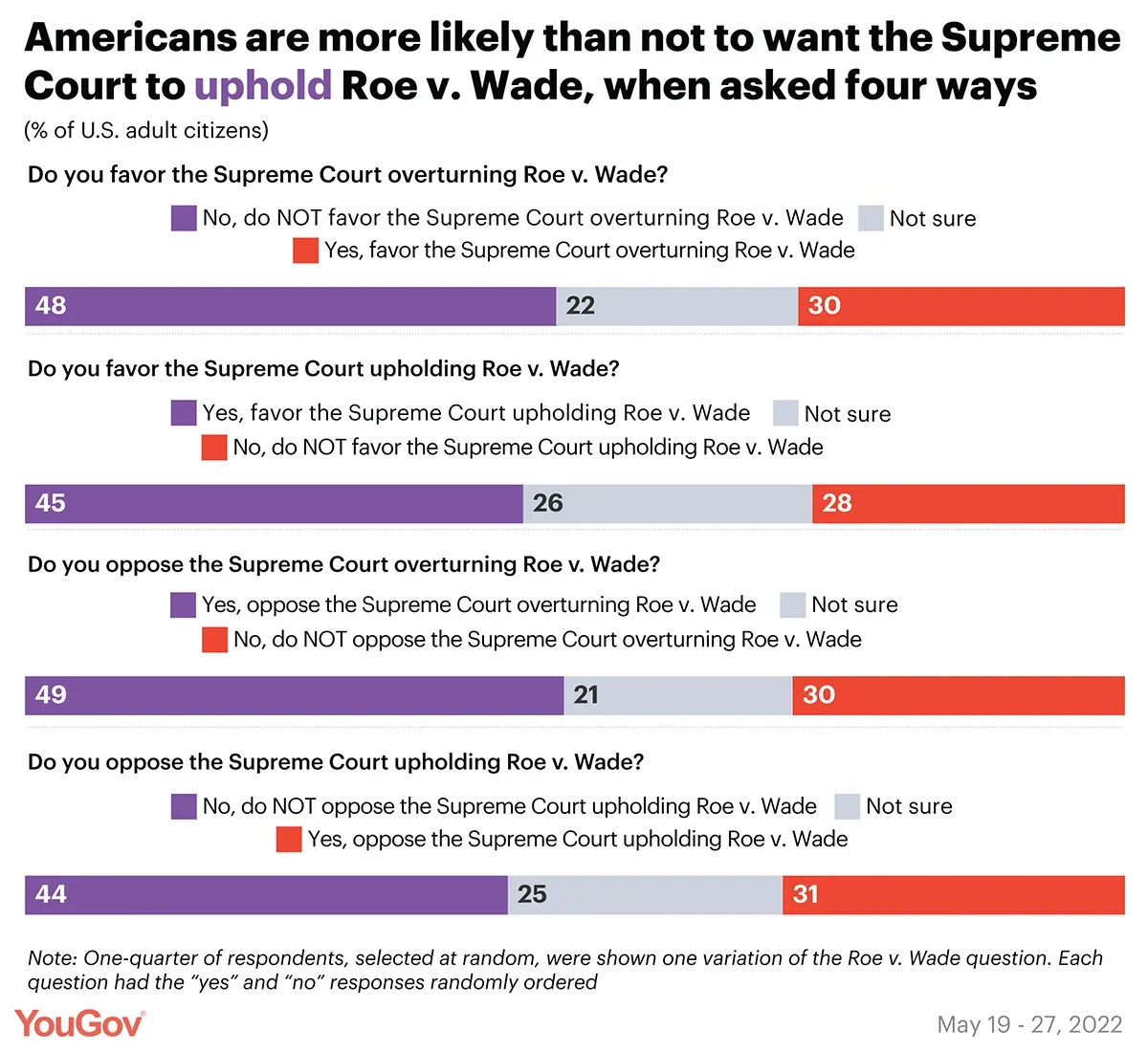With the Supreme Court expected to issue its opinion on a key abortion case in the coming weeks, pollsters such as YouGov have worked to measure Americans’ opinions on the landmark decision of Roe v. Wade that legalized abortion access nationwide. While Roe v. Wade is not directly on the Court’s docket, a leak from the Supreme Court in May indicated that a majority of Justices are ready to overturn the 1973 decision.
A compilation of data from four recent YouGov Polls indicates that more Americans do not want Roe v. Wade overturned than want it overturned, even when they are asked in different ways. The surveys included an experiment to test how question-wording affects support for overturning Roe v. Wade.
A phenomenon that has been known to occur in survey research is referred to as acquiescence bias, that is, a tendency of respondents to select a positive response option ("agree," "support," "yes") over a negative one ("disagree", "oppose," "no"). This can affect results when respondents’ agreeableness surpasses their willingness to report their true preferences. One way to test for the presence of acquiescence bias is to present a question in different ways, rewording it so that a positive response option in one variation of the question is displayed as a negative option in another. In the case of this Roe v. Wade experiment, this meant asking not only if respondents favor overturning Roe v. Wade (which they may respond either yes or no to) but also whether they favor upholding it (with similar yes or no response options). To be more thorough, we also tested two additional versions of this question, which ask respondents whether they oppose overturning or upholding Roe v. Wade.
In the experiment, four randomly selected groups, each containing one-quarter of respondents, were asked a different version of a question about whether they favor or oppose the Supreme Court either overturning or upholding its Roe v. Wade decision. The results indicate that regardless of how Americans are asked, they are more likely than not to want Roe v. Wade upheld. Among the four variations, there is no significant difference: For each one, 44% to 49% of people want Roe v. Wade upheld, while about 30% do not.

There is some indication in survey research that respondents are less prone to acquiescence bias when their opinions on an issue are firmly held, which is likely the case with Roe v. Wade for most Americans. People who lack an opinion on an issue may be inclined to agree with what they are asked about it — which is perhaps why this format for asking people’s opinions on Roe v. Wade shows no significant difference.
— Taylor Orth, Carl Bialik, and Ian Davis contributed to this article
Methodology: These polls were conducted in May 2022 (on May 19 - 22, May 20 - 22, May 23 - 27, and May 24 - 27) among 3,960 U.S. adult citizens. Each question was shown to a random one-quarter of each poll’s total sample, so each question was answered by about 1,000 respondents (with a range of 981 to 989 people per question). A programming error resulted in the affirmative option in all four responses being displayed with an extra “the,” meaning they saw “the the Supreme Court.” There was no indication in survey results or survey comments that this resulted in respondents not understanding the question, and it was applied across all questions.
Image: Getty











